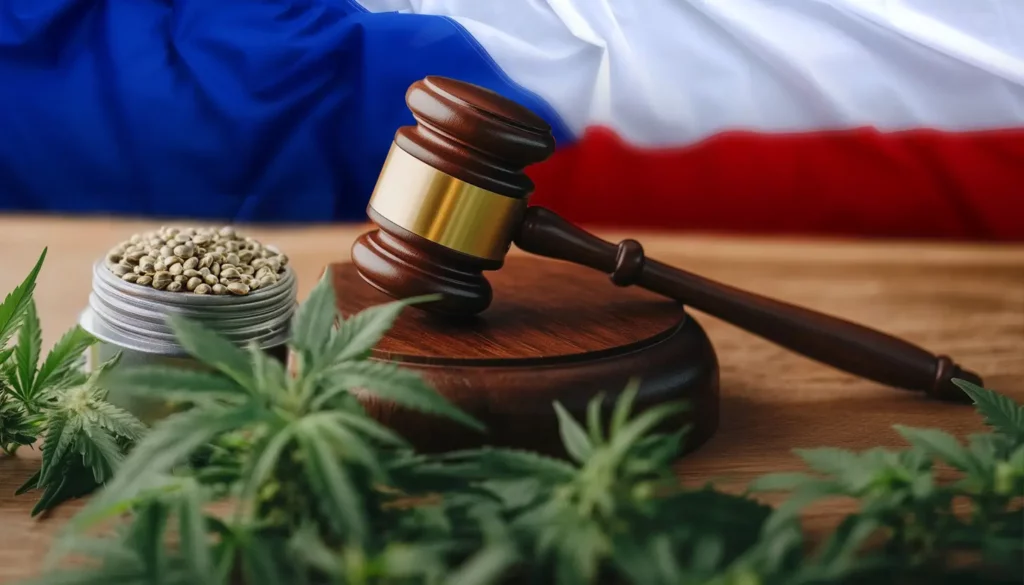The Czech Republic has just distinguished itself in Europe with the Senate’s approval of an unprecedented criminal law amendment concerning cannabis. This far from trivial development paves the way for a new era of cannabis regulation, while also sparking sometimes heated debate. We explore the motivations behind this change, its practical implementation, and the varied reactions it has generated from both the judiciary and civil society. What the Cannabis Law Really Changes in the Czech Republic?Until now, Czech cannabis legislation displayed a certain ambiguity, leading to disproportionate prosecutions against those whose use remained purely personal. With the Senate’s recently passed amendment, a new, clear framework emerges for a whole segment of the population who use or grow cannabis. From now on, growing a few plants for personal consumption no longer carries the risk of a severe criminal conviction. Instead of systematic prison sentences, the emphasis is now placed on alternatives such as fines, to better distinguish between small-scale amateur growers and outright traffickers. An acceptable dose for personal use has even been defined to avoid haphazard interpretations of the penal code.Practical arrangements: possession, cultivation, and penalties
One of the main benefits of this reform is to establish precise limits: now, possession of up to 100 grams at home and 25 grams in public no longer results in prosecution. This is a relief for many individuals who were previously exposed to uncertainty during stops or searches.
If the quantity possessed exceeds the set limit, it remains a punishable offense, but again, the penalties tend to focus on financial or educational measures. Cases significantly exceeding this limit continue to be handled within the strict framework of the fight against narcotics, particularly if the trafficking aspect is proven. Significant excess: maintenance of heavy criminal penalties Domestic cultivation: limited decriminalization for personal use
A subtle adjustment also allows judges to customize sentences according to each situation. The judge therefore retains a margin of discretion and can assess whether the purpose of the possession (private use, family sharing, marketing) justifies specific treatment. An initiative at the heart of a reformed penal plan Beyond the simple issue of cannabis, this legislative change is part of a much broader government project aimed at reducing the number of incarcerations, curbing recidivism, and optimizing justice resources. Ending the automatic repressive model thus demonstrates a clear desire to rethink the balance between repression and prevention.
At the same time, the text also introduces significant tougher measures for other modern offenses, particularly those related to the production of illegal content using artificial intelligence. This therefore represents a comprehensive overhaul of criminal policy, with each offense being prioritized separately based on its actual social impact.
Criticisms and reservations expressed regarding legalization Concerns of judicial authorities Despite overwhelming support among elected officials, not all welcome the reform on the legalization of cannabis Without nuance. Several members of the judiciary fear possible circumvention of the law, arguing that illicit networks could exploit certain “gray areas” to facilitate their activities under the guise of legality. The fear of seeing an increase in abuses in quantity management or of preempting investigations still looms. Another point of discussion: the question of whether possessing or transporting cannabis for others would be less likely to be punished today, opening the door to greater opacity for certain discreet intermediaries. To address these concerns, the Ministry assures that it maintains targeted surveillance while reiterating the need to assess each case on a case-by-case basis.
Positive reactions from health specialists and users
- Many advocates of a pragmatic approach to drugs see this as a welcome opportunity for de-stigmatization. Decriminalizing individual behaviors long systematically equated with serious crime could relieve court congestion while protecting small-scale users or family growers from harmful stigmatization. Some experts also point out that this clarification resolves absurd situations, such as when families were harassed simply for sharing a small home harvest without commercial intent. This type of decision thus fosters a peaceful climate surrounding long-standing practices in the country, setting an example for other European neighbors open to similar reform.
- Potential Consequences and Future of Cannabis Policy in Central Europe
The movement initiated by Prague has not failed to attract attention beyond the Czech borders. Many are already wondering about a possible European contagion effect, as modernization pressures are mounting in several neighboring countries where
the cannabis debate is progressing.
quickly. National strategies vary, however, oscillating between regulated tolerance and maintaining a strict line.
In a few years, the concrete results observed in the Czech Republic could fuel European discussions. The impact on recidivism rates, gray trade, as well as the savings achieved in the judicial system will certainly be crucial points to monitor closely to measure the effectiveness of this legal relaxation.



